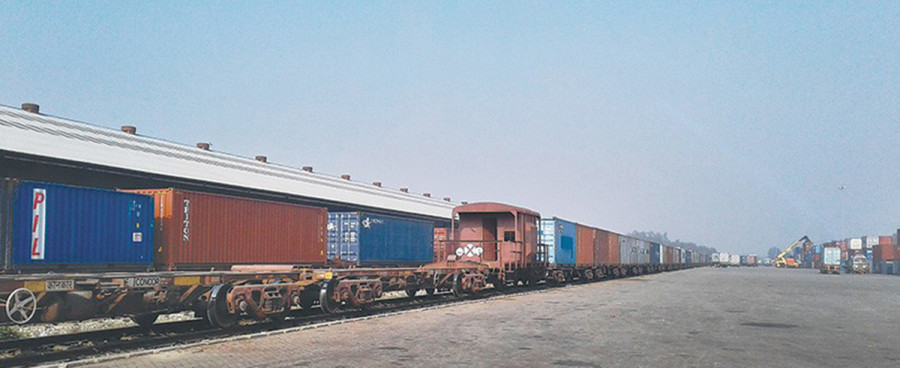Money
New rule to encourage use of electronic cargo tracking system
In a bid to facilitate the implementation of electronic cargo tracking for third country imports, Nepal Rastra Bank has allowed commercial banks to issue payment instruments in foreign currency for cargo transported by railway to Birgunj dry port and Biratnagar customs point only.
In a bid to facilitate the implementation of electronic cargo tracking for third country imports, Nepal Rastra Bank has allowed commercial banks to issue payment instruments in foreign currency for cargo transported by railway to Birgunj dry port and Biratnagar customs point only.
Earlier, banks were allowed to issue payment instruments for cargo dispatched to other customs points on the Nepal-India border too. Nepal Rastra Bank published a circular containing the new provision on Monday.
The central bank said the policy followed the government’s move to implement the electronic cargo tracking system and transshipment facilities. Currently, electronic cargo tracking and transshipment facilities only apply to shipments transported by Indian Railways to Birgunj and Biratnagar.
As per the new provision, banks cannot issue letters of credit, drafts or telegraphic transfers to traders importing goods using the Indian railway network. Banks issue these instruments to allow importers make payment to the seller in foreign currency. This rule is not applicable to third country imports transported by cargo truck.
According to the central bank, the new rule is expected to encourage importers to make maximum use of electronic cargo tracking and transshipment privileges. “The central bank has amended the provision at the request of the Ministry of Industry, Commerce and Supplies,” said a source at Nepal Rastra Bank.
Nepal has been utilising electronic cargo tracking and transshipment privileges on goods imported via Kolkata since mid-February. They were used on imports arriving through Vishakhapatnam port last August. The privileges do not cover shipments transported by cargo truck.
The electronic cargo tracking system uses the Global Positioning System, a satellite-based radio navigation system, and allows the shipper to keep track of consignments.
Similarly, the transshipment privilege allows authorities to clear their shipments directly at the Nepal-India border. The two systems are expected to remove problems that importers have been facing at Indian sea ports and customs points on the border.
They have also helped to greatly reduce paperwork for customs clearance. Earlier, importers needed to produce letters of credit and documents issued by the Department of Commerce and the Nepali Consulate General, among others, to get customs clearance at Indian ports. Following the implementation of electronic cargo tracking and transshipment privileges, no such documentation is needed at Indian ports.
Nepal piloted the electronic cargo tracking system at Kolkata port in April. It was discontinued due to the reluctance of importers and shipping companies to use the service. “The new rule requires firms to use the privileges if they want to use the railway service to import goods,” a central bank official said.
Nepal Rastra Bank has named the customs points at Mechi, Biratnagar, Birgunj, Bhairahawa, Nepalgunj, Dhangadhi and Birgunj dry port as legitimate destination points for imports transported by truck from Kolkata and Haldiya ports. The central bank has also made use of the Exim Code mandatory for importers.




 9.56°C Kathmandu
9.56°C Kathmandu












